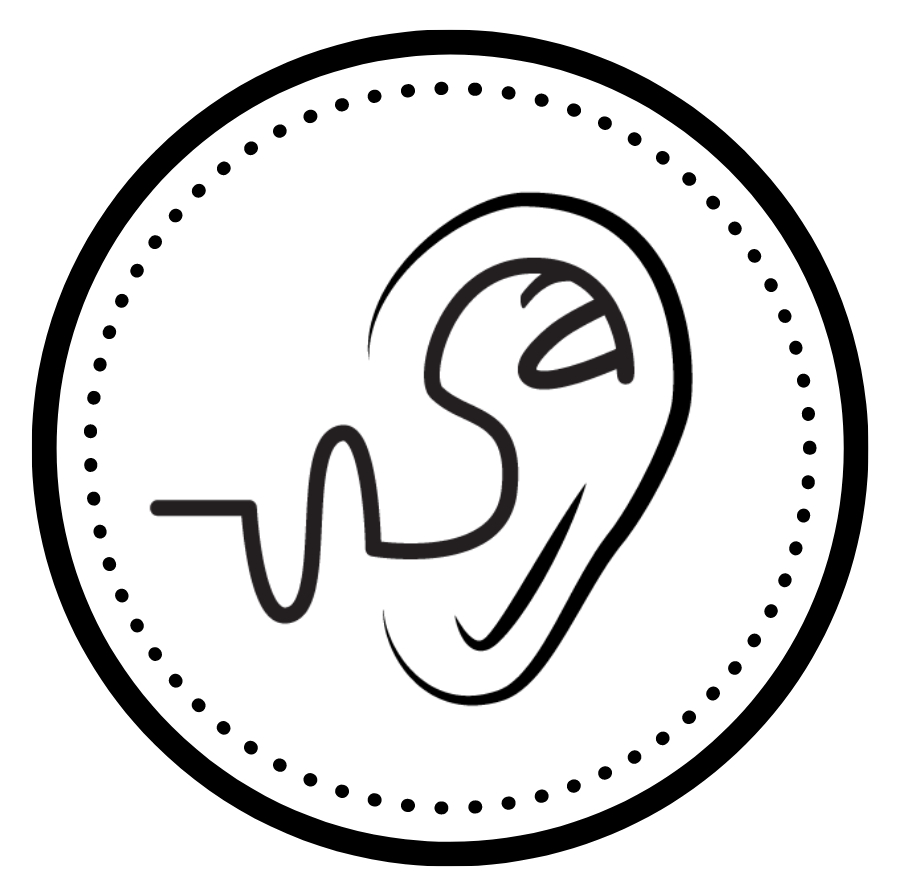Every now and then, I get message requests from students asking about my experience as an audiologist. I get so happy when I review their questions because I love sharing how I wound up in such a niche field. My experience is unique and I had the privilege to decide on my own that becoming an audiologist was the best career choice for me. I recognize that it may not be a good career choice for everyone, so please reach out if you have questions because I want to be a resource for those who are curious about what life as an audiologist can look like.
Here are a few questions I answered for someone’s interview assignment (posted with her permission):
Q: What do you like about this occupation?
A: I love working in the field of audiology because you can see patients of all ages. There are also jobs available in a variety of practice settings (e.g. private clinic, research, schools, hospitals, etc.) Audiologists are in high demand to provide rehabilitation care for hearing loss and tinnitus; these are health problems that cannot be reversed or cured with medicine in most cases. I like that there is an art AND science to working with audiology patients – the art of structuring counseling and management unique to each patient’s communication challenges and the science of understanding how hearing technology can be used to help patients with hearing loss communicate in social situations.
I could go on – but there is honestly so much flexibility within our scope of practice!
Q: What is your educational background?
A: I majored in Speech and Hearing Sciences at University of Washington and received my Bachelor’s degree in 2014. I enrolled in University of Washington’s Doctor of Audiology Program and graduated with my Au.D. degree in 2018.
Q: What is a typical day like for you?
A: I work in a private ear, nose, and throat clinic that supports four physicians. My typical schedule will vary depending on the day of the week. Most days, I spend the morning doing audios (average of 2-3 patients), eat lunch, and then in the afternoon, I have hearing aid related appointments (e.g. hearing aid evaluations, fittings, hearing aid cleanings, follow ups, etc.).
Q: What is the salary range for someone in this occupation?
A: The salary range for audiologists will vary depending on the location of practice, type of practice setting, and years of experience. In my area, we have a higher cost of living, so the expected range is $84,000-100,000.
Q: What is your most satisfying experience so far?
A: It’s so hard to choose just one! One of my fondest and most satisfying experiences was with an 82 year old Veteran who had longstanding severe-to-profound sensorineural hearing loss in both ears. His word discrimination ability was close to 10%, and that was in the binaural condition. He lived with his wife and they were both struggling to communicate with each other (despite wearing appropriately fit hearing devices) because it was so effortful. The patient’s wife communicated with him through writing and made sure to bring a notepad and pen everywhere they went.
When the patient came in for a cochlear implant consult, I had to type out our counseling points (e.g. overview of how an implant works, realistic expectations, etc.). Patient’s wife shared the challenges that they’ve been having for nearly a decade and also reported concerns about his memory/cognitive abilities. After reviewing his candidacy and obtaining approval, patient underwent surgery for a right CI.
Fast forward to a few weeks post-surgery and the patient came in for his initial activation. Everything went well. Patient was able to hear sounds and it was a really emotional moment for the patient and his wife because he was finally able to hear his wife’s voice. Did it sound great? Probably not, but the fact is, he had been living a silent life for much too long and getting the implant allowed him to hear speech again.
At his 1 month follow up, the patient and his wife returned and we did a quick speech assessment to measure his benefit with the implant. He was making incredible progress and get this – his wife commented that the patient’s personality and sense of humor have since returned now that they can both communicate via spoken language. It was a 180 degree transformation for the patient pre and post CI, and to be part of his journey was absolutely, one of the most satisfying moments for me to witness 🙂
Q: What is the biggest challenge to becoming an audiologist?
A: For me, the biggest challenge to becoming an audiologist was learning time management in clinic. Sometimes, I can get caught up with developing rapport with a patient during case history or counseling and lose track of time. This results in me running late with following appointments. Or, I might have a really chatty patient that wants to tell me everything about their medical history dating back to 50+ years ago. With more clinical experience and guidance from my preceptors, I’ve learned how to redirect the conversation so that I get the pertinent information about the patient’s hearing history. The goal is to do this without offending them but still be able to wrap up the appointment on time.
Q: What made you decide to become an audiologist?
A: Growing up, I always imagined myself working in healthcare because I became fascinated with how different parts of our bodies function. Heading into my freshman year of college, I didn’t know which part of healthcare I wanted to pursue, so I signed up for classes that would allow me to explore different fields within healthcare.
I enrolled in a class called Hearing Disorders and that was when I was first introduced to the field of communication sciences. The more I learned about the complexities of the ear, hearing, and how hearing loss affects individuals and their communication partners, the more I wanted to explore a career dedicated to helping these individuals. From there, I started to connect with the Speech and Hearing Sciences Department advisor and contacted local audiologists to shadow them in clinic. Observing several audiologists in action helped me realize that I wanted to become an audiologist to provide rehabilitation care for patients with hearing loss.
A: What was your most challenging college course?
Q: In undergrad, the most challenging course I took was Hearing Science. We learned about tonotopic organization of the cochlea, tuning curves, etc. and it was definitely a tough quarter with weekly quizzes! In grad school, I thought the most challenging course was Assessment of Balance Function. If I thought learning about the auditory system was complex, learning about the vestibular system was even more complex!
Final thoughts
I hope this is helpful for some of you who are considering a career in audiology. I plan to share more posts like this if you find them helpful – let me know in the comments below!





I’m glad that you talked about the audiologists are in high demand to provide rehabilitation care for hearing loss and tinnitus; these are health problems that cannot be reversed or cured with medicine in most cases. My cousin has a problem with hearing. Thank you for the information about the audiologist ill make sure to let my cousin know about this and also to have him check.
I blog often and I really appreciate your information. This article has really peaked my interest. I will take a note of your website and keep checking for new information about once per week. I subscribed to your Feed as well.